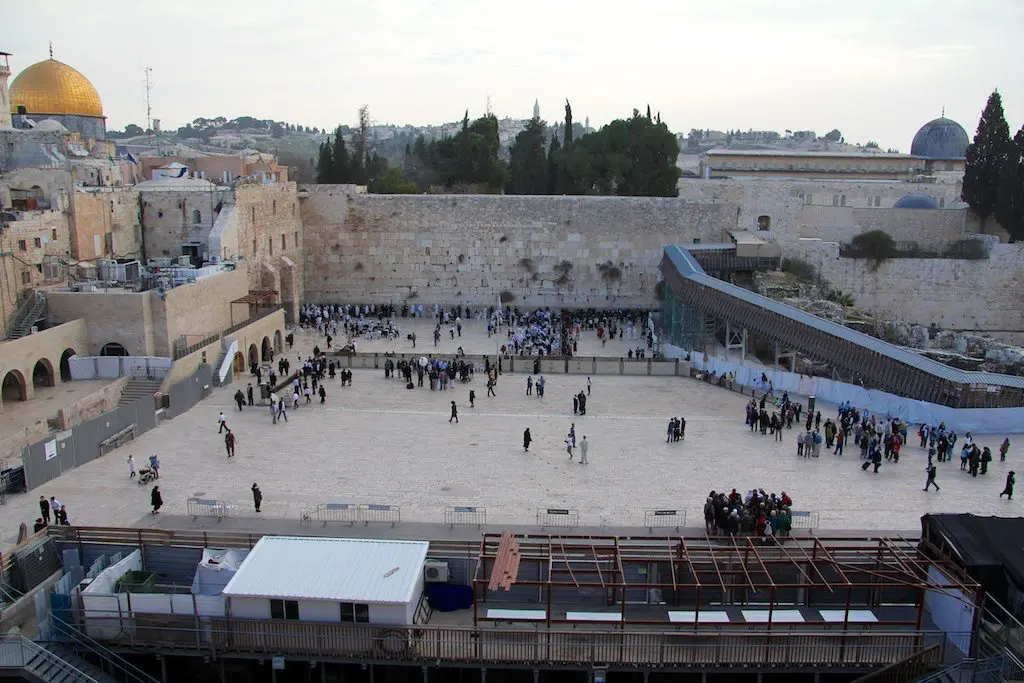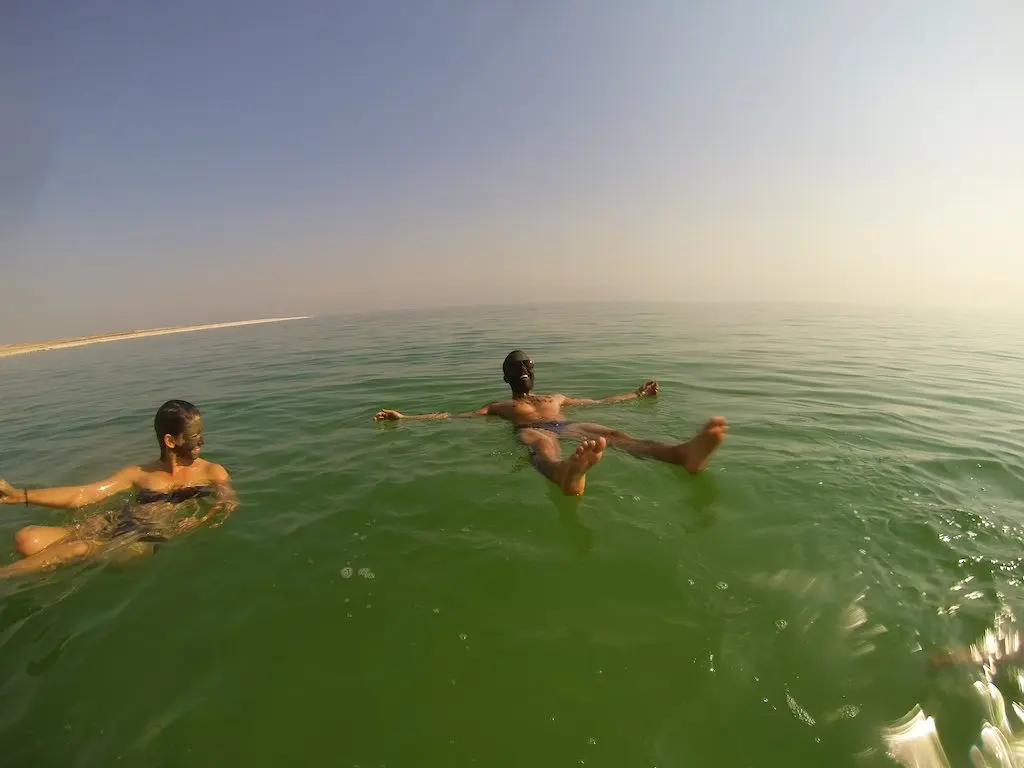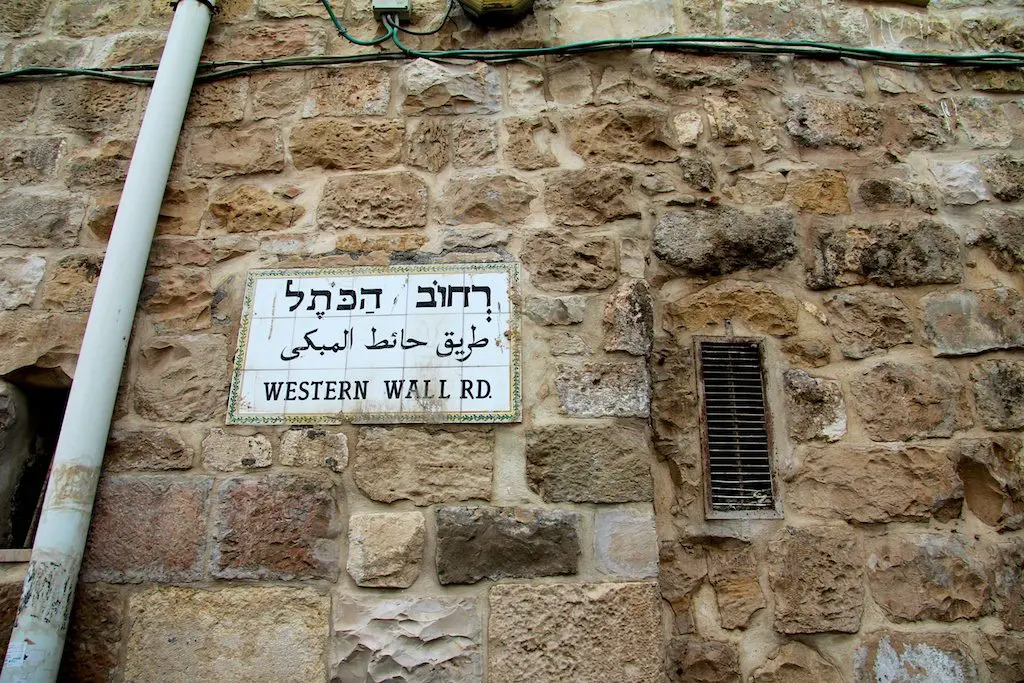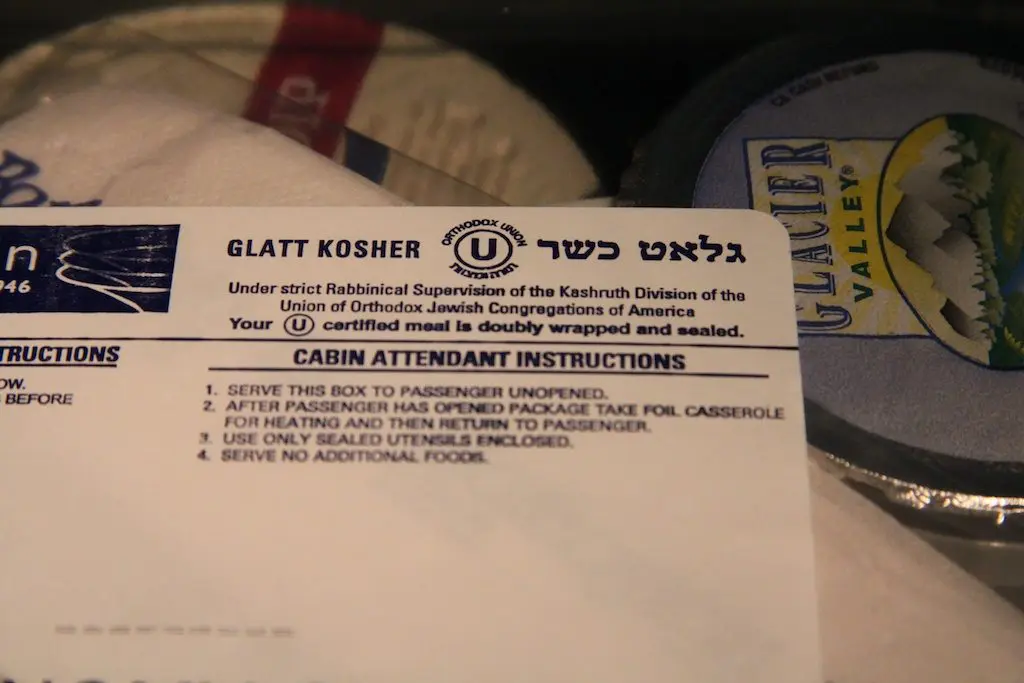A Beginner’s Guide To Israel
A small country the size of New Jersey nestled in the middle of the Arab world and bordered by three seas (Dead, Med, Red), Israel is a fascinating place rich in history and steeped in tradition. Famous for hummus, the Mossad, being Jewish and the sprawling metropolis that is Tel-Aviv, this place is far from the desolate dune-filled desert you may have imagined.
ISRAEL FACTS
- Capital: Jerusalem
- Language: Hebrew | Arabic
- Currency: New Shekel / ₪ / NIS
- Population: 7,993,100
- Time Zone: UTC+2
- Calling Code: +972
- Drives On: Right
- Drinking Age: 18
- Drinking In Public: Illegal between 21:00 and 06:00
- Drinking Tap Water: Safe
- Flushing Toilet Paper: Okay
- Vaccinations Required: None
- Credit Cards: Visa/MC widely accepted
- Tipping: 10% at restaurants or bars – none for cabs
- Emergency Numbers: Police: 100; Ambulance: 101; Fire: 102
- Outlets: 220 volts, 50Hz; European-style two-pin and round three-pin plugs
- Visa Requirements: Israel Ministry of Foreign Affairs
ISRAEL BASICS
- LANGUAGE | Hebrew and Arabic are the two official languages of Israel, but English usually accompanies the two on signs, menus, and whatever else it is that people read nowadays. English is also widely spoken throughout the country, and not knowing Hebrew or Arabic should not pose much an obstacle to visitors.
- GETTING AROUND | All the major cities are quite walkable, but if walking isn’t your thing there are plenty of buses, light rails, bike rentals, and the ever-present taxis to get you where you need to go. Ask to start the meter in cabs if the driver doesn’t do so. The country’s intercity bus company Egged offers many trips between major cities daily for very reasonable fares.
- BUDGET TRAVEL | A trip to Israel does not have to be expensive. Reasonably priced (and quite nice) hostels are plentiful, and many of the country’s major attractions cost nothing to visit. Stuffing yourself with cheap street falafel and hummus while you explore Israel’s cities is incredibly affordable. What about a trip to the beach, an outdoor market, or the Western Wall? All will all cost you nothing.
- THINGS TO DO | Tel-Aviv and Jerusalem should be a part of any Israel itinerary, but once you (if you) make it through all historical and religious sites, you can spend your time enjoying the beautiful landscape of Israel. Head out on a hike in the Golan Heights, float in the Dead Sea (DO THIS), camp out in the Negev Desert, or travel south to the Red Sea for some incredible scuba diving or snorkeling.
- WHEN TO GO | If the beaches of Tel-Aviv or the resorts of Eilat are your destinations then you may find yourself best off visiting in the summer months (from as early as April through as late as October). The winter can be cold and rainy, but temperatures rarely fall below 40˚F in the major cities. Also, keep in mind that religious holidays drive thousands of people to the country in March/April and September/October (depending on the year).
WHAT TO EAT
- HUMMUS | I am ashamed to say that prior to arriving in Israel, I had never eaten hummus. Fortunately, this meant that I had no hummus eating experiences to be ruined, but unfortunately, my hummus experiences since have been all downhill. Supermarkets in Israel sport entire sections devoted to hummus, and you would be hard-pressed to try them all.
- FALAFEL | Who knew that if you ground up chickpeas and deep-fried them, the result would be so amazing? Everywhere you go claims to have the best shawarma, but only through tireless and gluttonous investigation will you ever know for sure.
- SHAWARMA | Those magical, vertical, rotating spits in restaurants? That’s shawarma. It commonly consists of either lamb, chicken, turkey, beef, veal, or any of these meats in combination with one another. Like falafel, shwarma is cheap, delicious, and abundant in Israel. Get some.
- ARAK | The national drink of Israel (and many other countries in the Middle East), arak has the viscosity of vodka with the taste of Jägermeister. Commonly served with grapefruit juice, it is worth a try, but personally, I am not a fan. More on arak here.
ISRAEL TIPS & TRICKS
- SHABBAT | In Israel Shabbat is celebrated weekly from sundown on Friday until sundown on Saturday. During this time many businesses are closed and public transportation (taxis not included) does not run. Be sure to plan accordingly if you are going to be moving between cities on these days.
- KOSHER | Many (not all, but a solid half) of the food vending establishments in Israel are kosher. This means no mixing of meat and dairy, no shellfish (among other things). You may not even notice this at first, but once you try to add some sausage to your pizza or cheese to your hamburger you may find yourself out of luck. More on kosher food here.










